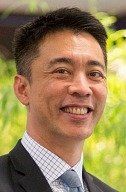Liew Nam Soon: «Differentiate or Die for Many»
The year has just begun, what are your key priorities in your new role in 2018?
I will continue to leverage and further deepen relations with clients, regulators, and bring the whole of EY together for more joint collaborations. Our focus is to carve out a bespoke strategy best suited to help specific clients in their respective industries to achieve their business objectives and projected growth trajectory amidst all the disruption.
«Smart cities will be resilient to environmental, social and economic challenges»
At the industry level, key themes at the top of our minds are around the future of work and upskilling of the talent workforce, usage of big data analytics to help clients be more targeted in their client engagement, retention and acquisition strategies and digital or cyber security.
What are the top three challenges facing the industry?
Firstly, the challenge to find sustainable growth amidst increasing competition and digital disruption. It is ‹differentiate or die› for businesses as traditional firms in FMCG, healthcare, logistics and resources industries find themselves disintermediated across value chains as different industries converge on shared or cross offerings. By 2030 the world’s 750 largest cities are projected to account for 61 percent of global GDP. Smart cities will be technologically enabled, connected and resilient to environmental, social and economic challenges.
«Dealing with cyber threats has become a boardroom issue»
Secondly, Asean is a complex market with different business maturities, regulations, language and culture. Operating an effective business model across this region that is both differentiating and cost effective is not an easy task. Asean businesses are finding they need to address scale issues by expanding across the region but also deal with competition from countries like China. Singapore as the Asean chair will be able to leverage digital, data and infrastructure financing and potentially integrate the other Asean markets and fully maximize the advantages of going digital.
Finally, on the flipside of digital disruption and data analytics, dealing with cyber threats has become a boardroom issue and no one is immune to this emerging threat.
What can EY do to help clients with these challenges in the current economic and geopolitical climate?
We recently announced the launch of the EY Geostrategic Business Group aimed at actively working with organizations and institutions globally to understand the business implications of the geopolitical landscape and help them navigate it, manage existing global operations and identify new business opportunities.
«Many of the Asean countries’ businesses are particularly looking at Indonesia»
The Geostrategic Business Group will build on existing global EY offerings around three core areas: footprint assessment, growth strategies and managing disruption. These service offerings will be enhanced through the global EY network and supplemented by relationships with external groups such as geopolitical advisory firms, think tanks and universities.
With that, we are well positioned to help our clients achieve their own business objectives, which in turn will also address the current gaps in financial inclusion to help achieve sustainable, long-term growth.
Besides China, in which regions do you see significant potential in further activities and expansion for EY's financial services practice?
Many of the Asean countries’ businesses are particularly looking at the large consumer economy of Indonesia, infrastructure projects arising from Belt Road Initiative (BRI), trade flows, cross border opportunities and emerging technologies targeting the financially excluded consumers and MSMEs.
 Liew Nam Soon has more than 25 years of consulting experience in the retail, private and investment banking, asset management, life insurance and private equity industries. Before EY, he was a partner with PwC, and started his career with Andersen Consulting. He holds an MBA from Imperial College in London as well as an undergraduate degree in engineering from Nanyang Technological University in Singapore.
Liew Nam Soon has more than 25 years of consulting experience in the retail, private and investment banking, asset management, life insurance and private equity industries. Before EY, he was a partner with PwC, and started his career with Andersen Consulting. He holds an MBA from Imperial College in London as well as an undergraduate degree in engineering from Nanyang Technological University in Singapore.
- << Back
- Page 2 of 2



















